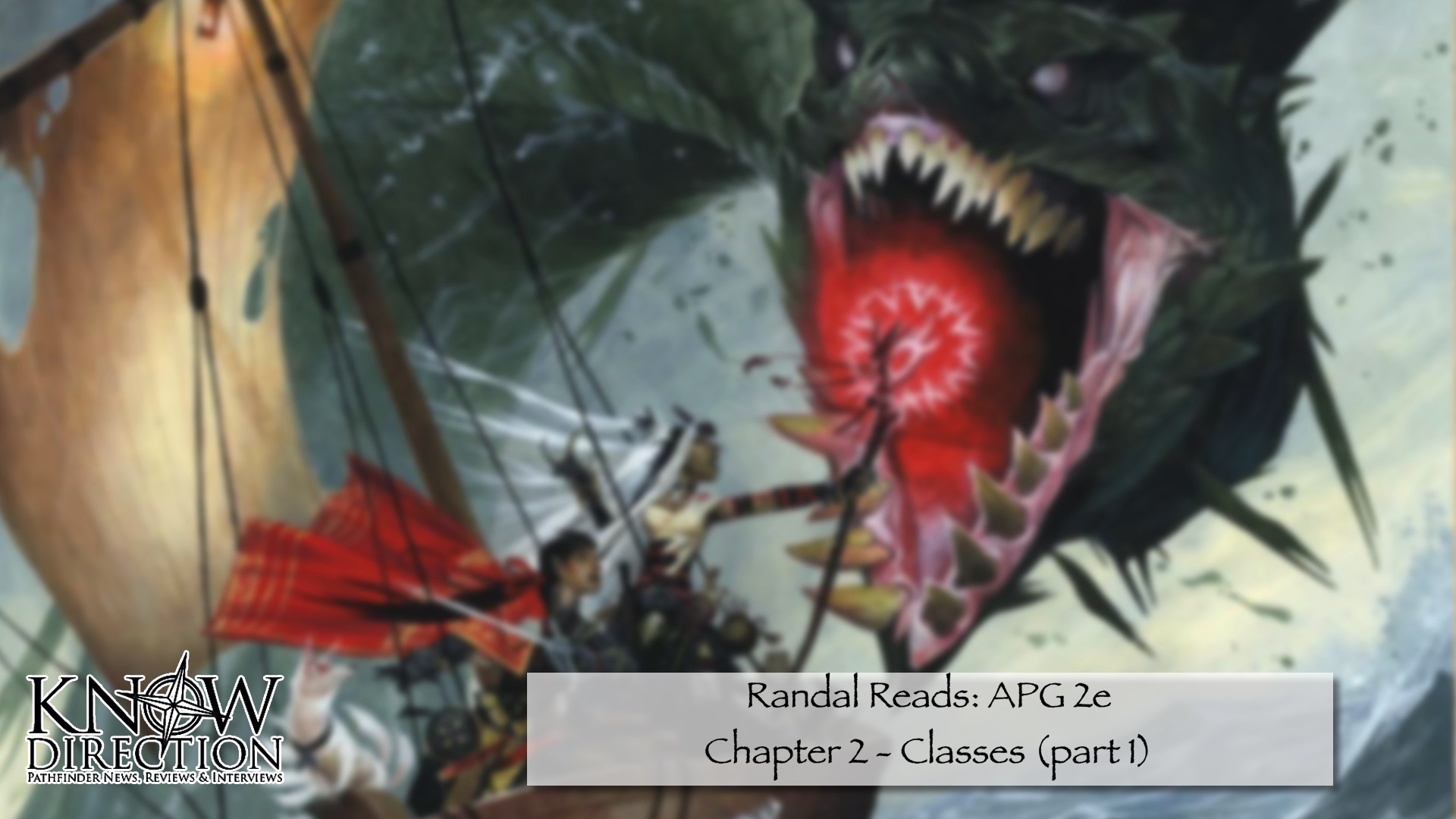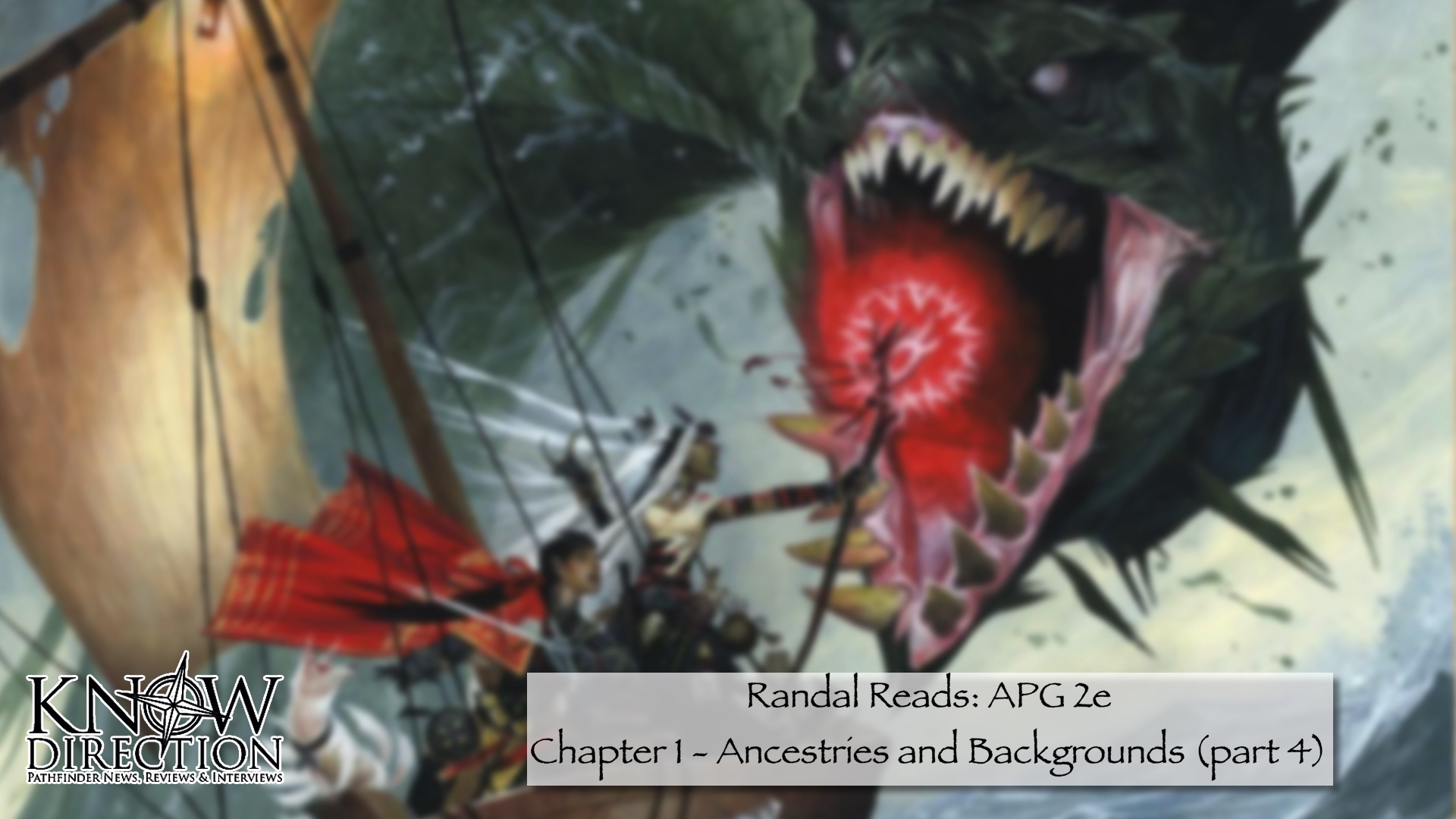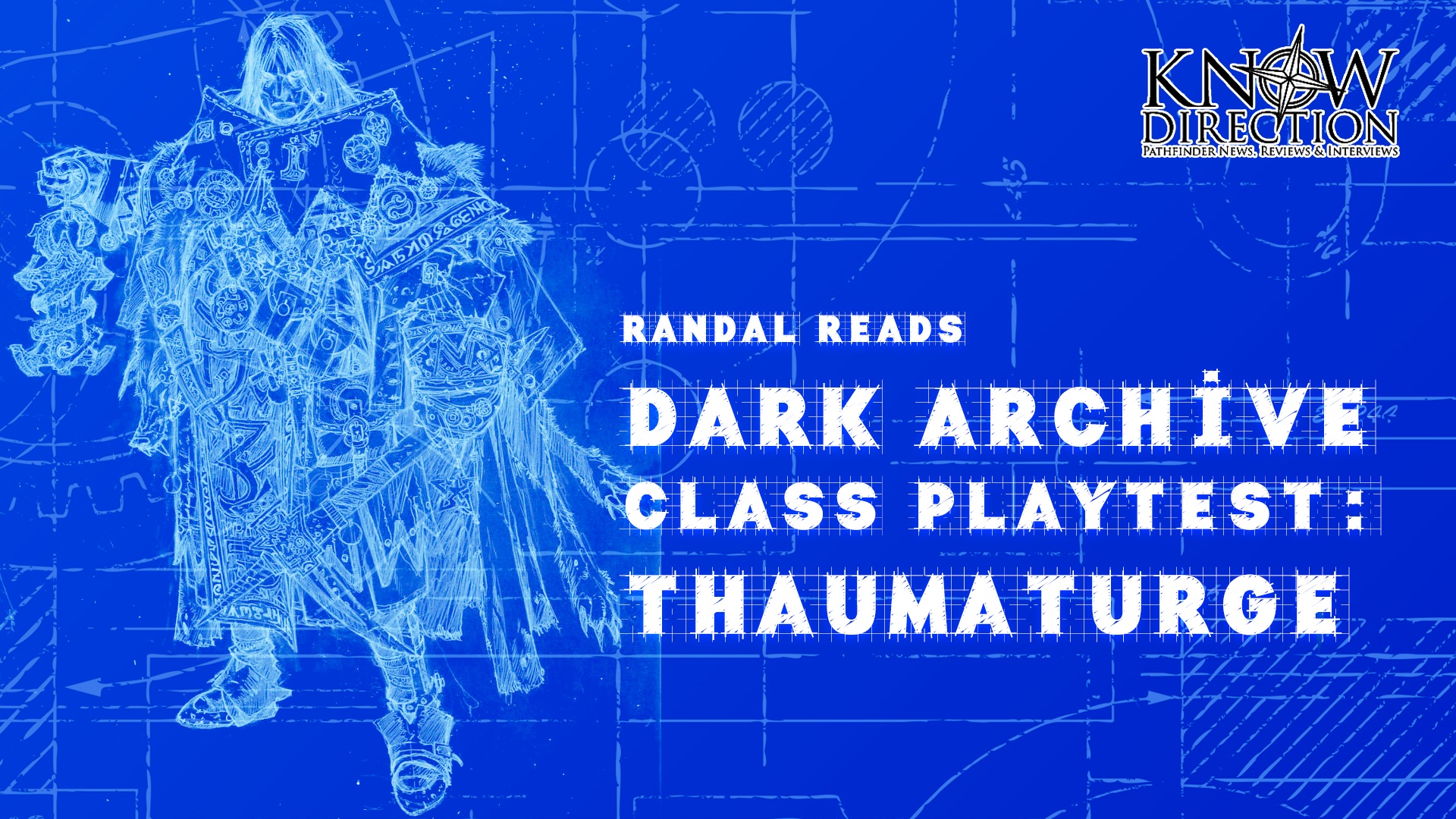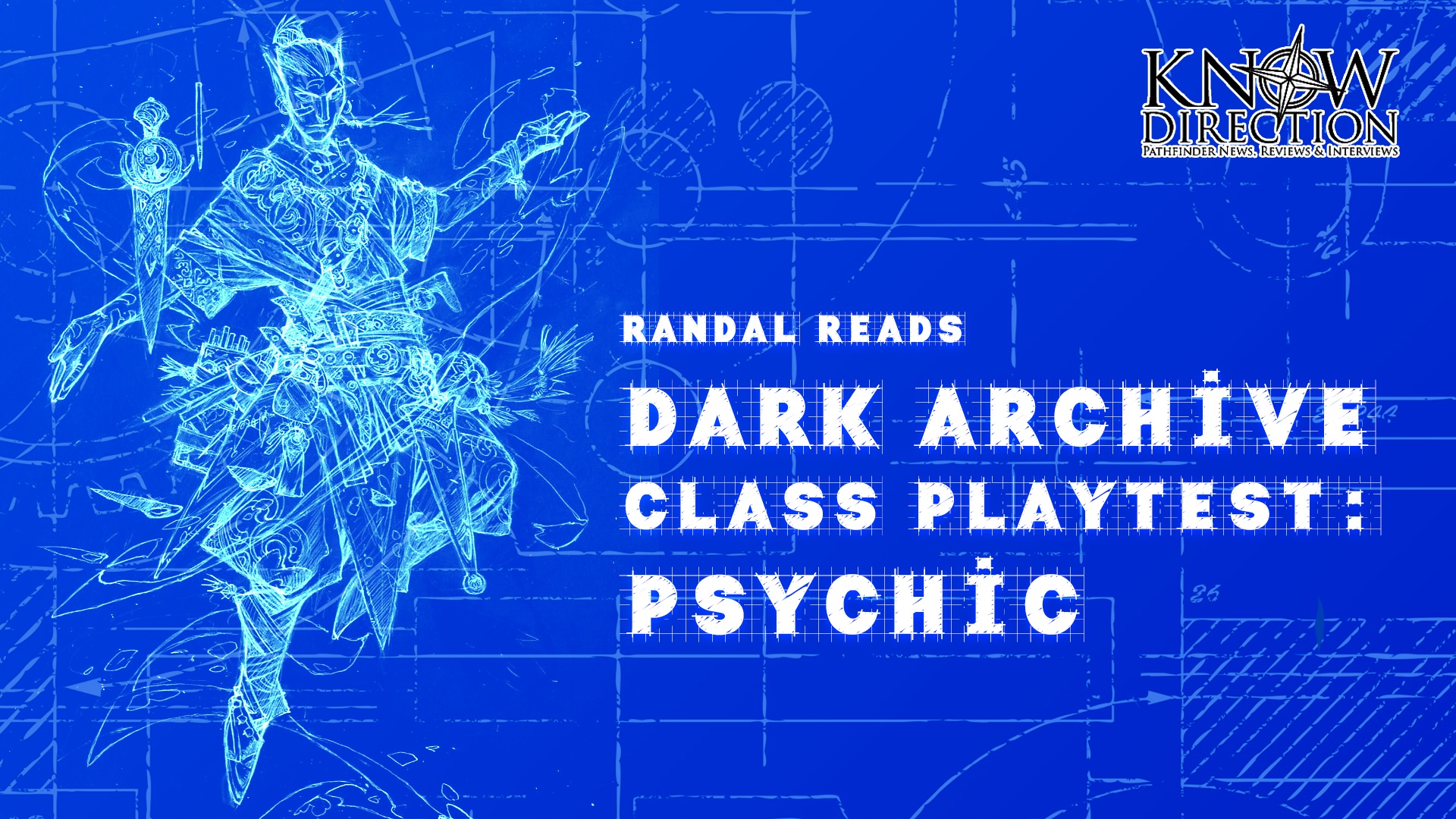Welcome back to the continuation of the Advanced Player’s Guide special review blog! If you missed the beginning, you can find it here! We covered the new feats for core ancestries as well as new backgrounds yesterday. Today we dive into the some classes, Investigator and Oracle!
Chapter 2 – Classes
Still a fan of the class icons. I don’t know why, I just am. It is nice to see this summary page so that you can get a glimpse of your favorite classes with a page number to jump to if you don’t care about the others. Nice to see some new class paths called out for existing classes, but let’s just move onto the main attraction … new classes.
Investigator

- Methodology
- Alchemical Sciences – as the name implies, you are able to use alchemical elixirs and tools
- Empiricism – your skillset is all about doing math and running probabilities
- Forensic Medicine – again, per the name, you are adept at gleaning clues by inspecting victims’ bodies
- Interrogation – you have honed the art of getting people to talk, whether they know it or not
I like the idea of the investigator. I never played one in 1e, but I did recently watch some Sherlock with my wife, so the flavor is fresh in my mind. It keys off of Intelligence, has 8 hit points, Expert at Perception, Reflex, and Will, 6-ish trained skills (Int bonus will make that 10+ usually) and light arms/armor training make it sturdier and more versatile than your wizards. On the Case (Pursue a Lead and Clue In) and Devise a Stratagem, core parts of all Investigators) are all fun parts of the fantasy that I can link to various scenes from pop culture. I think the methodologies cover the obvious tropes pretty well. In reading through the class feats, I was happy to see the majority of them are usable by all methodologies, but intrigued to see that some were marked as Uncommon. I can only assume that is due to them being proactive about PFS sanctioning; which I think is a pretty good idea. There are so many fun feat concepts, with evocative names too, that I would have a hard time trying to narrow down which ones I would want to use. Since Sherlock seems to have them all, I guess I will have to concept a non-Sherlock character to make the decisions easier.
 I think my first build will likely be an empiricist with That’s Odd (1st; immediately know something in the room is out of the ordinary), Red Herring (2nd; know when you attempt to pursue a lead that is inconsequential), and Ongoing Investigation (4th; move at full speed while using Investigate and use another activity) so that he they be the first one to grab all the details, as fast as possible, with less chance of mistake, all the while simply walking from room to room … increasing the odds that others don’t even know I’ve already won. Predictive Purchase (6th; reach into bag and have an item you didn’t say you bought) is a fun feat and now I think this Investigator is an ysoki (“packrat”). Whodunnit (8th; ask GM two yes/no questions to narrow down details) will help with all the clues collected, Just One More Thing (10th; let’s you retry an influence action you failed) can keep a faux pas from impeding an investigation, and Reason Rapidly (12th; one action 5 Knowledge Recall checks) means I can work the clues even faster. Continuing with the thinking and planning, I think Plot The Future (14th; contemplate events and GM determines likeliness) and Implausible Purchase (16th; more random items per day, and faster retrieval) fit the bill. While I haven’t chosen any alchemical or combat abilities thus far, I think that makes a perfect use of Trickster’s Ace (18th; basically a 4th or level contingency spell) as nobody would see it coming. To cap it off, while I really like Just The Facts (20th; always know when you don’t know something) … I didn’t see fit to take the prerequisite so I guess Everyone’s A Suspect (20th; any number of personal leads and only 1 minute interaction) will have to do.
I think my first build will likely be an empiricist with That’s Odd (1st; immediately know something in the room is out of the ordinary), Red Herring (2nd; know when you attempt to pursue a lead that is inconsequential), and Ongoing Investigation (4th; move at full speed while using Investigate and use another activity) so that he they be the first one to grab all the details, as fast as possible, with less chance of mistake, all the while simply walking from room to room … increasing the odds that others don’t even know I’ve already won. Predictive Purchase (6th; reach into bag and have an item you didn’t say you bought) is a fun feat and now I think this Investigator is an ysoki (“packrat”). Whodunnit (8th; ask GM two yes/no questions to narrow down details) will help with all the clues collected, Just One More Thing (10th; let’s you retry an influence action you failed) can keep a faux pas from impeding an investigation, and Reason Rapidly (12th; one action 5 Knowledge Recall checks) means I can work the clues even faster. Continuing with the thinking and planning, I think Plot The Future (14th; contemplate events and GM determines likeliness) and Implausible Purchase (16th; more random items per day, and faster retrieval) fit the bill. While I haven’t chosen any alchemical or combat abilities thus far, I think that makes a perfect use of Trickster’s Ace (18th; basically a 4th or level contingency spell) as nobody would see it coming. To cap it off, while I really like Just The Facts (20th; always know when you don’t know something) … I didn’t see fit to take the prerequisite so I guess Everyone’s A Suspect (20th; any number of personal leads and only 1 minute interaction) will have to do.
Oracle

- Mystery (benefit, skill, cantrip)
- Ancestors – extra ancestry feats (1st, 11th), Society, guidance
- Battle – medium/heavy armor and martial weapon group, Athletics, shield
- Bones – can heal from negative energy, Medicine, chill touch
- Cosmos – resistance all physical (2 + 1/2 level), Nature, dancing lights
- Flames – expert Reflex and lightning reflexes (13th), Acrobatics, produce flame
- Life – 10/level HP instead of 8, Medicine, stabilize
- Lore – extra repertoire spells each level, Occultism and Lore, read aura
- Tempest – wind/rain/water don’t block vision/perception, Nature, electric arc
The Oracle is a mystery to me … ducks. I still have in my head that the Oracle is a divine Sorcerer … and in some respects that is what the 1e Oracle was. I cannot claim to believe that anymore. Oracles are spellcasters that are Charisma based, have 8 hit points, Expert in Will, have 5-ish trained skills and only simple weapon training … making them on par with sorcerers, but more HP. You can claim that mysteries are like bloodlines, but really only in structure (as are most of the classes to be honest), but that is pretty much where the similarities stop. An Oracle’s Mystery is just that … some force or power that provides them with their divine connection and wreaks havoc on them for having the audacity to use the connection. Each Mystery is very different, and while all the curses have the same stages and use the same mechanics for progressing up and down those stages … each Oracular Curse is very different. Each day you start refreshed, but there is always some effect that manifests to let you know that you are cursed … even if others can’t always see it. As you use your Revelations (Focus Spells), your curse progresses in stage. Once you have started the progression each day, you can never back it completely off until you get a full 8 hour rest and prepare for the next day. This quirk is fun and challenging (although to different degrees for each Mystery/Curse). You can usually, reduce your curse a stage by taking a 10 minute refocus rest, but you can never remove the minor stage of your curse without that big rest and preparation. Each Mystery provides a benefit (which can be anything from feats to resistances to extra hit points), a trained skill, a granted cantrip, revelation spells (1 automatically at 1st, the other via feats), and related domains (accessed via feats). The feats read like most spellcaster feat lists … Reach Spell (1st), Widen Spell (1st), Cantrip Expansion (2nd), Bespell Weapon (4th), and more. A couple of the oracle only feats grabbed my eye- Divine Aegis (1st) and Oracular Warning (10th).
 I don’t have to wonder what my first build will be. I am already playing an Oracle of Flames in an Extinction Curse game, a Tiefling in fact. I am really looking forward to rebuilding him and then planning out his progression (although he is kinda wishy-washy and planning him out might be detrimental to his character growth). Without thinking too hard on it, I would currently say his build will look something like: Divine Aegis (2nd; reaction to gain a bonus against non-divine magic … with a penalty to divine effects), Bespell Weapon (4th; weapon gains extra damage after casting a spell), Advanced Revelation (6th; access advanced revelation spell), Read Disaster (8th; weal or woe … without weal), Oracular Warning (10th; free action during initiative that lets you offer an ally the ability to use fortune for their initiative, but you have misfortune), Greater Revelation (12th; access greater revelation spell), Forestall Curse (14th; keep curse from increasing 1/day), Portentous Spell (16th; reactions against your casting have penalties, fascinate targets/reactors), Blaze of Revelation (18th; put off succumbing to curse), Mystery Conduit (20th; advance curse instead of use spell slot for 5th and lower).
I don’t have to wonder what my first build will be. I am already playing an Oracle of Flames in an Extinction Curse game, a Tiefling in fact. I am really looking forward to rebuilding him and then planning out his progression (although he is kinda wishy-washy and planning him out might be detrimental to his character growth). Without thinking too hard on it, I would currently say his build will look something like: Divine Aegis (2nd; reaction to gain a bonus against non-divine magic … with a penalty to divine effects), Bespell Weapon (4th; weapon gains extra damage after casting a spell), Advanced Revelation (6th; access advanced revelation spell), Read Disaster (8th; weal or woe … without weal), Oracular Warning (10th; free action during initiative that lets you offer an ally the ability to use fortune for their initiative, but you have misfortune), Greater Revelation (12th; access greater revelation spell), Forestall Curse (14th; keep curse from increasing 1/day), Portentous Spell (16th; reactions against your casting have penalties, fascinate targets/reactors), Blaze of Revelation (18th; put off succumbing to curse), Mystery Conduit (20th; advance curse instead of use spell slot for 5th and lower).
Thanks for reading along … tune in tomorrow as I read about the Swashbuckler and the Witch!
And, as always, please join us at our Discord server https://discord.gg/Rt79BAj to let me know what you think or simply have a chat!





